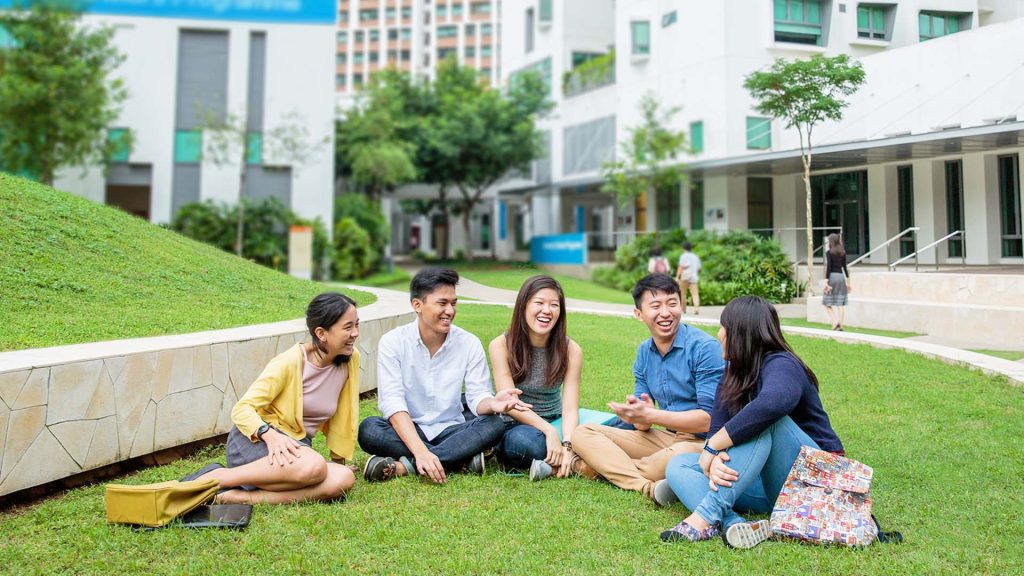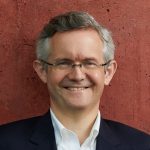Rethinking University Education
January 6, 2022
IN BRIEF | 2 min read
- Computers know everything and artificial intelligence is acquiring the skills to apply that knowledge. What is there left to teach? Newly appointed Dean of NUS College Professor Simon Chesterman, answers the question in this opinion piece.

| By Professor Simon Chesterman |
Once upon a time, education meant the transmission of knowledge.
Teachers and professors like me were in possession of that knowledge, and we were paid by students (or their parents, or the state) to pass it on.
Aristotle thought of those students as empty vessels, ready to be filled with facts and wisdom. The very first university, in Bologna, consisted solely of students who would pay teachers on an annual basis, depending on the classes they wanted to take.
Technology demolished all that nonsense.
It began with writing, a practice that Socrates himself fretted about. He worried that if humans relied on it, rather than our minds, we would become lazy. Yet the benefits of expanding our memory through the written word have been immense — among other things, we only know about Socrates’ fears because Plato, his student, wrote them down.
Today, Plato’s notes are available instantly and freely from dozens of websites to anyone on the planet.
In my classroom, every student holds a device that can access almost all of human knowledge. Though I may be a little ahead of my students, our phones are a portal to vastly more knowledge than will ever fit into any of our brains.
So, what are those students (or their parents, or the state) paying me for?
Until recently, I might have said to teach them the skills of applying that knowledge.
This view of education also has old roots. A saying often misattributed to Confucius (it was probably Xunzi, one of his students) runs as follows: “I hear and I forget. I see and I remember. I do and I understand.”
Critical and analytical skills remain an important part of education, but this is an area in which computers are making inroads also. The jobs most threatened by artificial intelligence are not all low-paying manual labour, which uses hand-eye coordination that took hundreds of thousands of years to evolve. Nor are they high-end conceptual jobs that use creativity and imagination.
Some of the easiest jobs to automate, it turns out, are the ones that involve the kind of thinking you can teach someone in a few years. An undergraduate education, in other words.
What, then, can we teach our undergraduates to prepare them for this brave new world?
Knowledge remains important. You still need an architecture of information on which to build your understanding of the world.
Skills are also vital. Your ability to acquire new knowledge and apply it to new circumstances must go beyond a carefully crafted Google search.
Perspective and Values
To these I would add perspective and values.
Perspective means the ability to look at a question in context, to see it from different angles.
I think of this as transcending boundaries. That comprises literal boundaries, meaning that different people from different countries and life experiences may understand a problem differently. It also includes metaphorical boundaries, the disciplinary silos within which many academics confine themselves.
Helping students to think this way requires nudging all of us out of our comfort zones. Travel helps, as does ensuring that our classrooms and our living spaces are diverse.
Values are harder to teach, but start with a shared commitment to basic principles of fairness and justice, personal integrity and mutual respect.
In August this year, the National University of Singapore will welcome the first students in our new NUS College (NUSC). The name epitomises our goal of offering a residential experience that is rich and rigorous, but with all the resources of one of the world’s leading universities.
A T-shaped Programme
The NUSC academic programme is “T”-shaped — offering broad, interdisciplinary competencies that equip students for life, along with the opportunity to dive deep into areas in which you are passionate. (Or, as NUS President Tan Eng Chye says, it can also be π-shaped — like the Greek letter “pi” — if you want two specialisations.)
The common curriculum itself is organised around skills, perspectives, and values.
Foundational modules draw on the liberal arts tradition that cultivates critical and analytical skills, supplemented with data and computational studies. In a world being reshaped by artificial intelligence, our graduates need qualities that machines don’t yet have — as well as the ability to understand and work with those machines.
New Making Connections and Global Pathways programmes will enable our students to take these skills to the world. Within NUSC, that involves bringing global perspectives to bear on issues. We will also support curated programmes for students to pursue studies or internships abroad — in places like the United Nations or a museum, a Fortune 500 company or a Silicon Valley start-up.
Underpinning all of this is a commitment to making Singapore and the world a more just and sustainable place. These values are epitomised in the signature Impact Experience team project. Students will co-create a project that addresses a 21st century challenge — whether that’s climate change or inequality, public health or cybersecurity — proposing solutions through innovation, service delivery, or creative expression.
University should be about more than just studies and preparing for a career, however. It’s a time of self-exploration and growth.
This is more than self-indulgence. On most measures, success in life has little to do with narrow benchmarks of academic achievement. Having a successful career, being a happy and fulfilled person, has more to do with your ability to work with others, to overcome setbacks, to lead and to inspire.
Our residential programme will cultivate these traits — sometimes led by us, but also making space for students to create their own opportunities.
The first NUSC cohort will commence studies in August 2022. These pioneers will join trailblazers from the University Scholars Programme and partners in the Yale-NUS College.
My colleagues and I look forward to welcoming that cohort in a few months. And though we plan to offer them a world class education, I’m confident that my colleagues and I will learn much from them also.
This article was first published on 6 January 2022 in The Straits Times under the title “A New Chapter for NUS”, and on NUSnews.
 About the author
About the author
Professor Simon Chesterman is Vice Provost-designate (Educational Innovation) at the National University of Singapore, and Dean-designate of the new NUS College. He continues to serve as Dean of the Faculty of Law.

